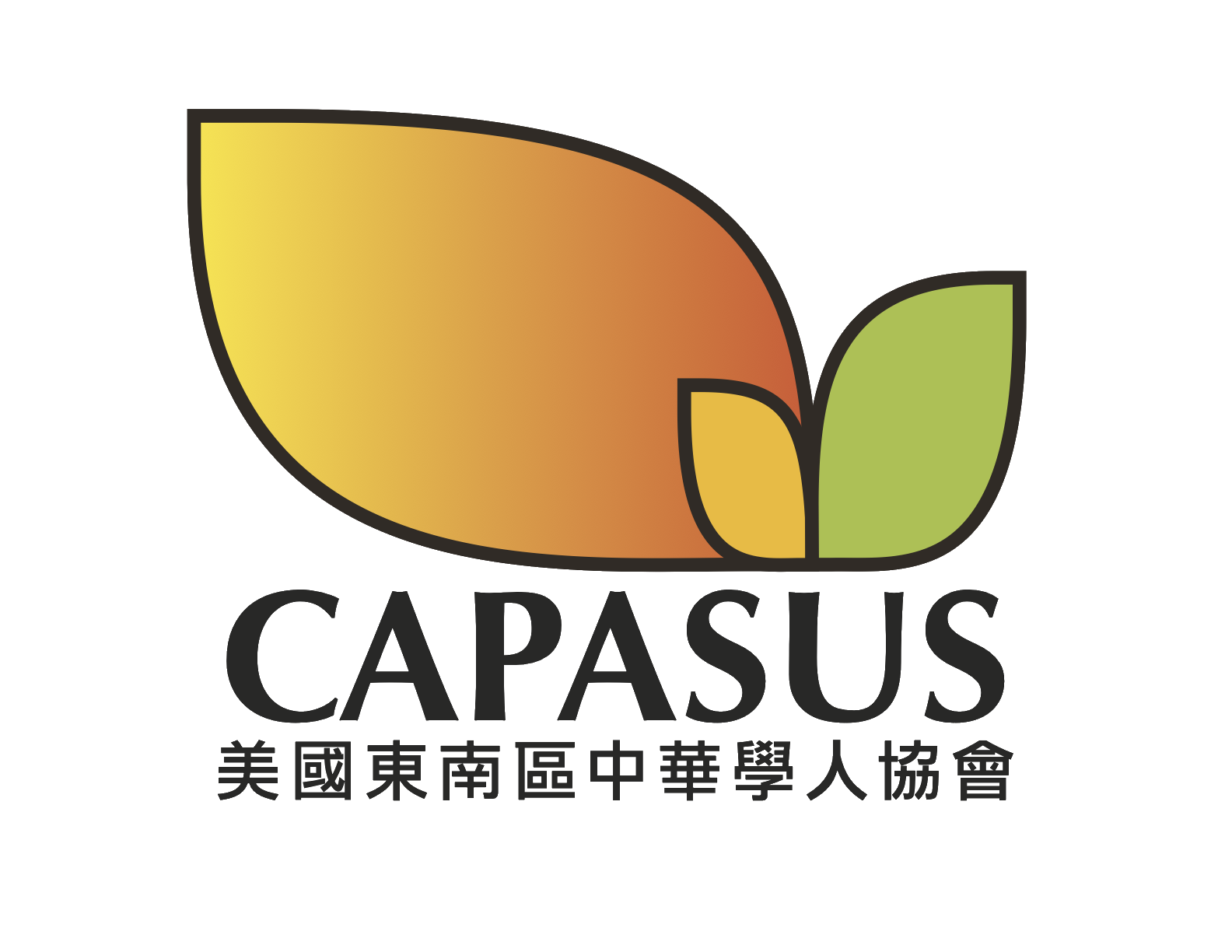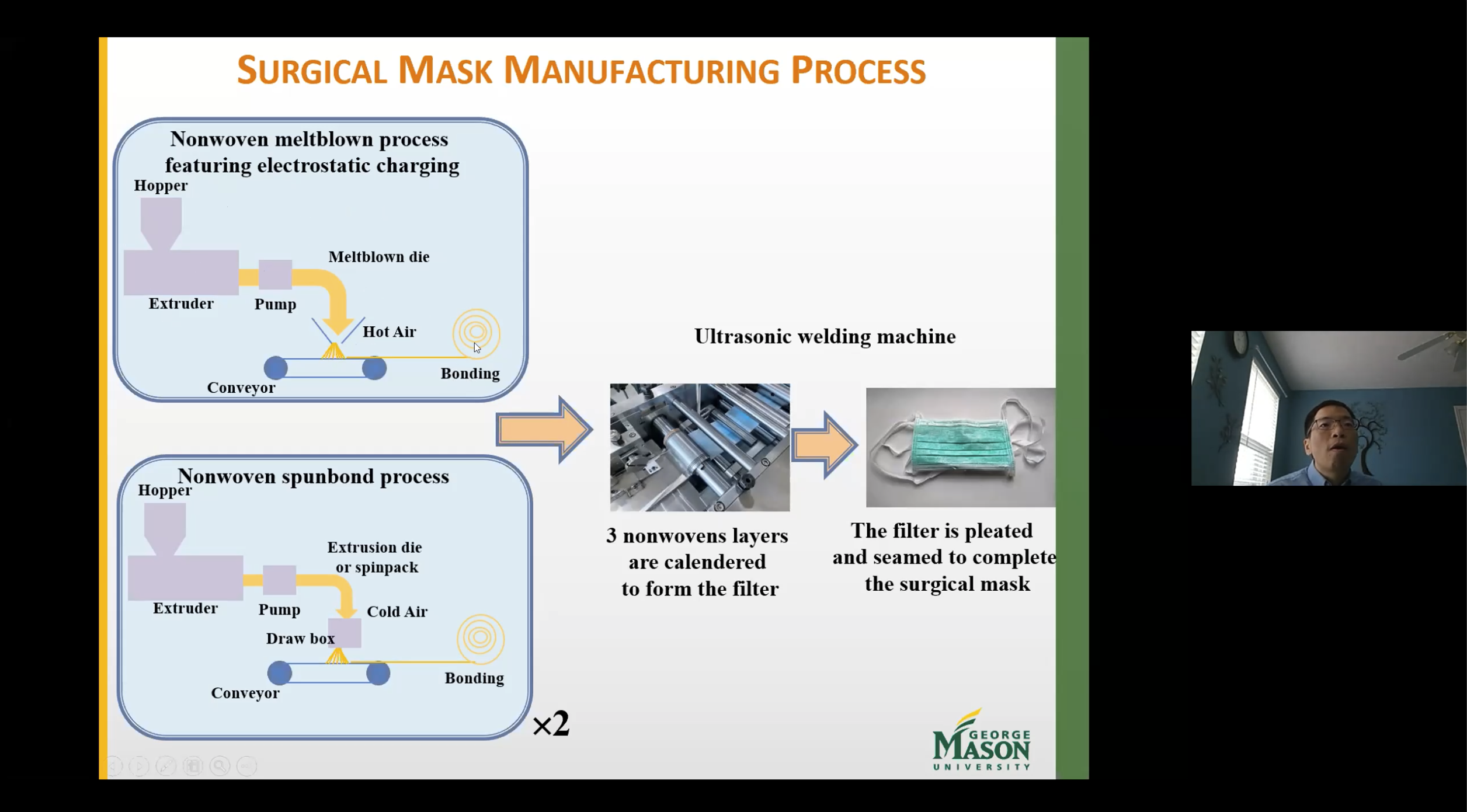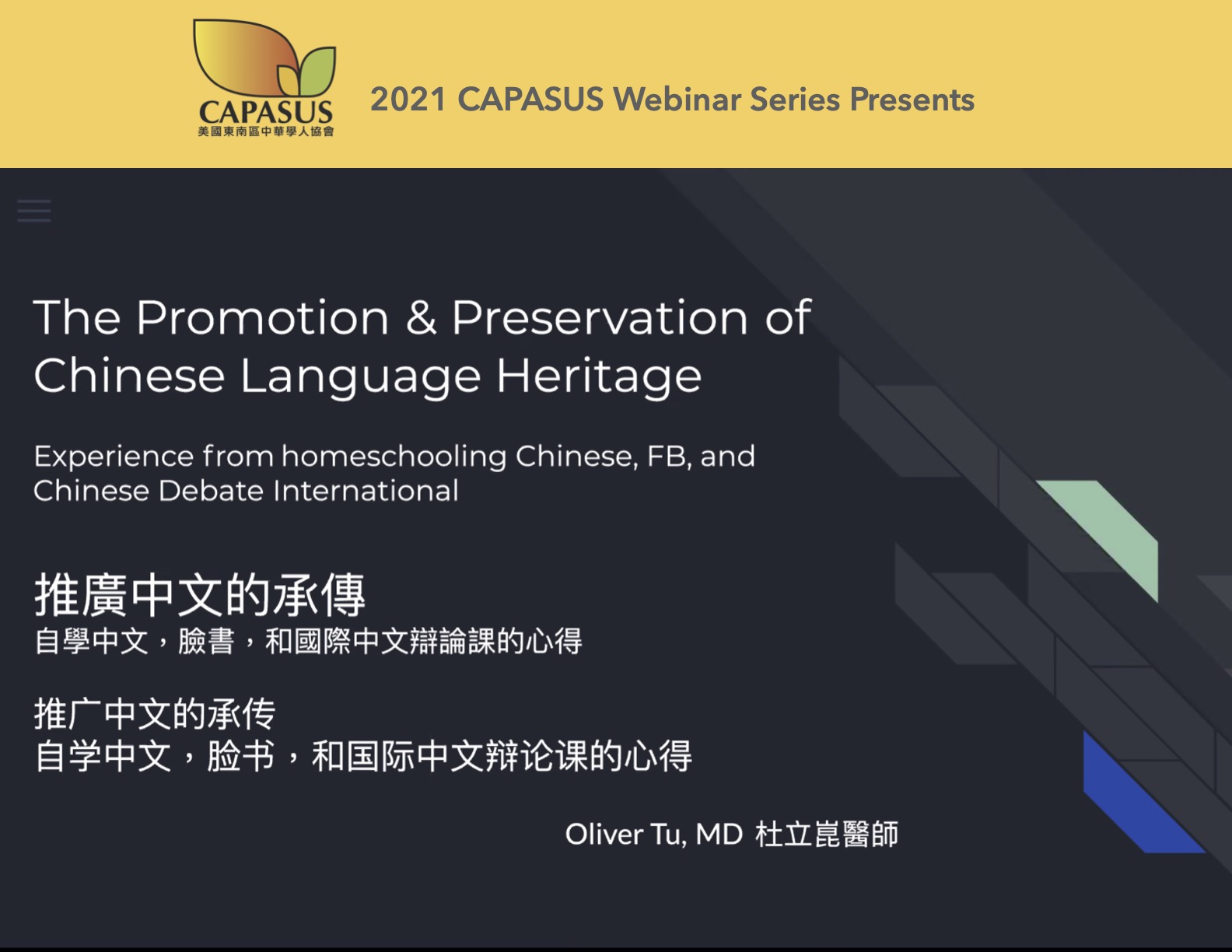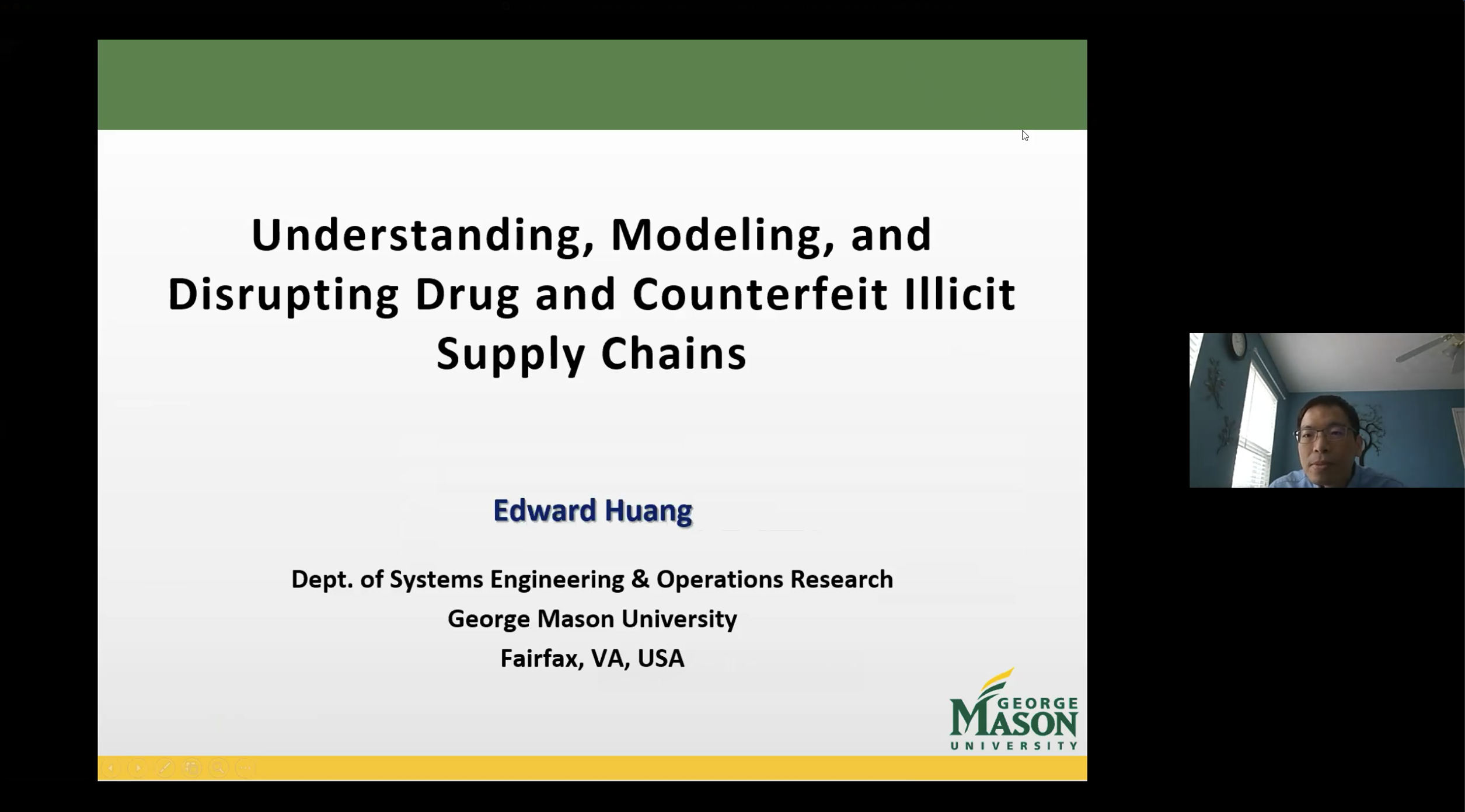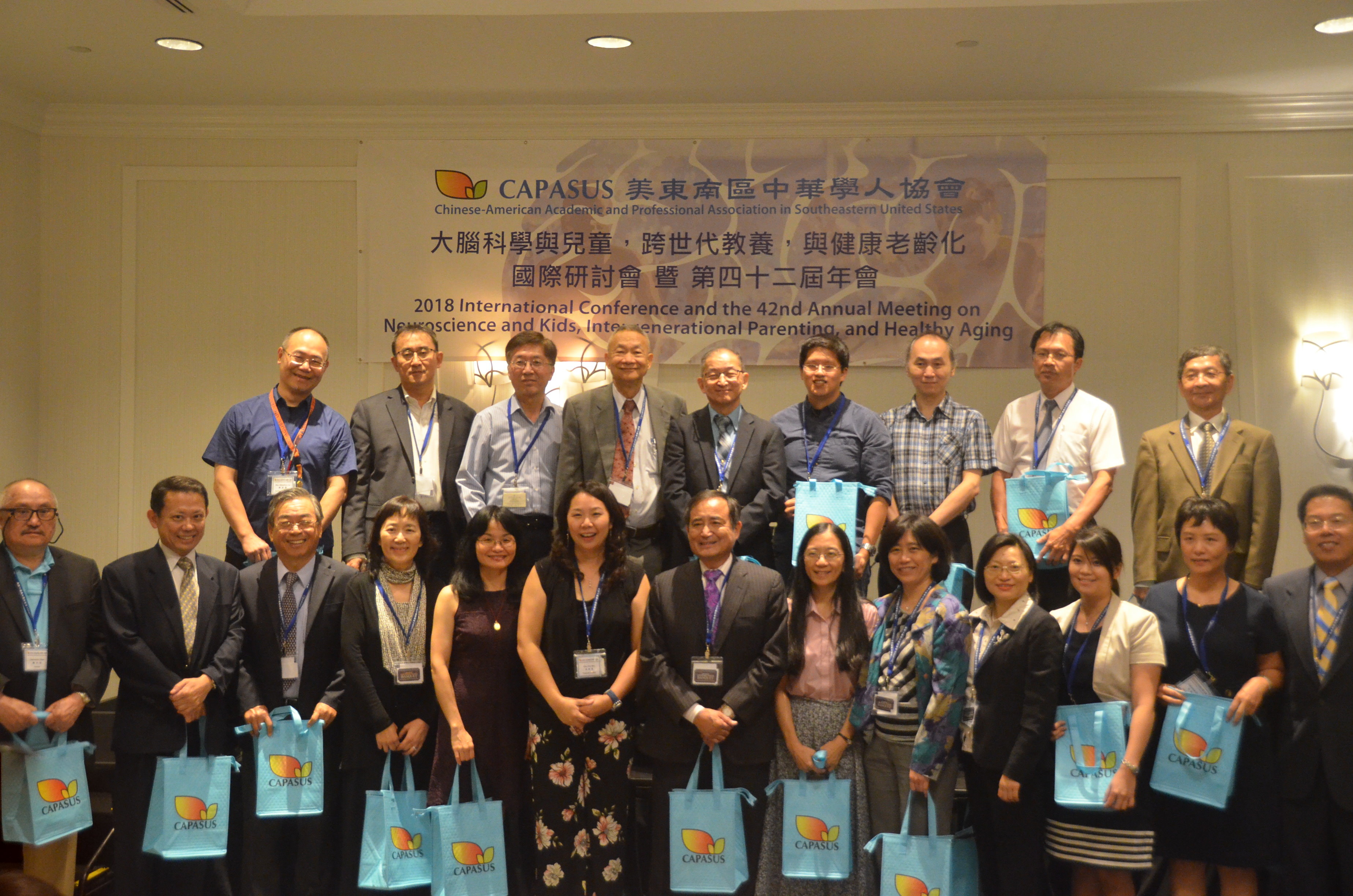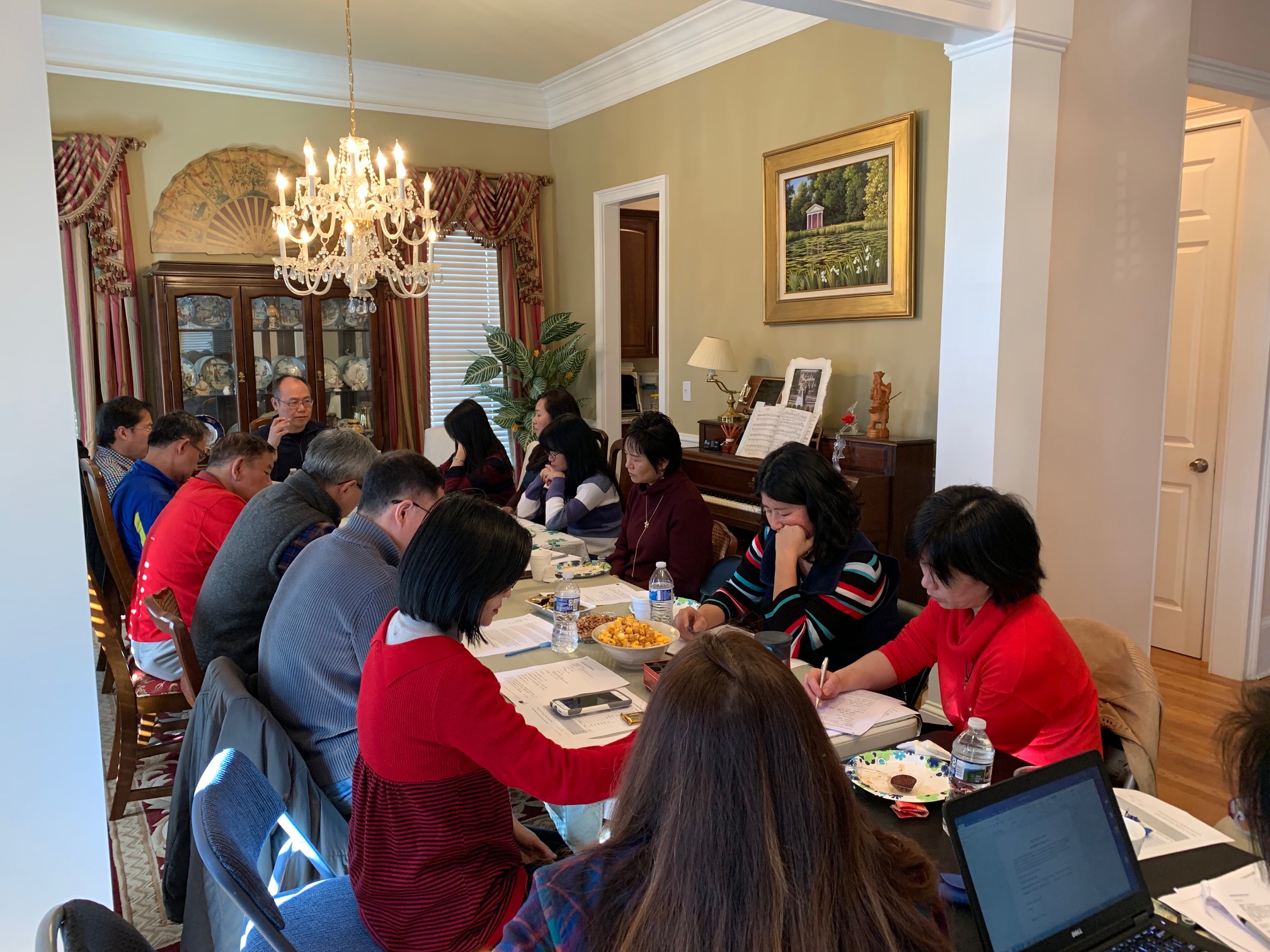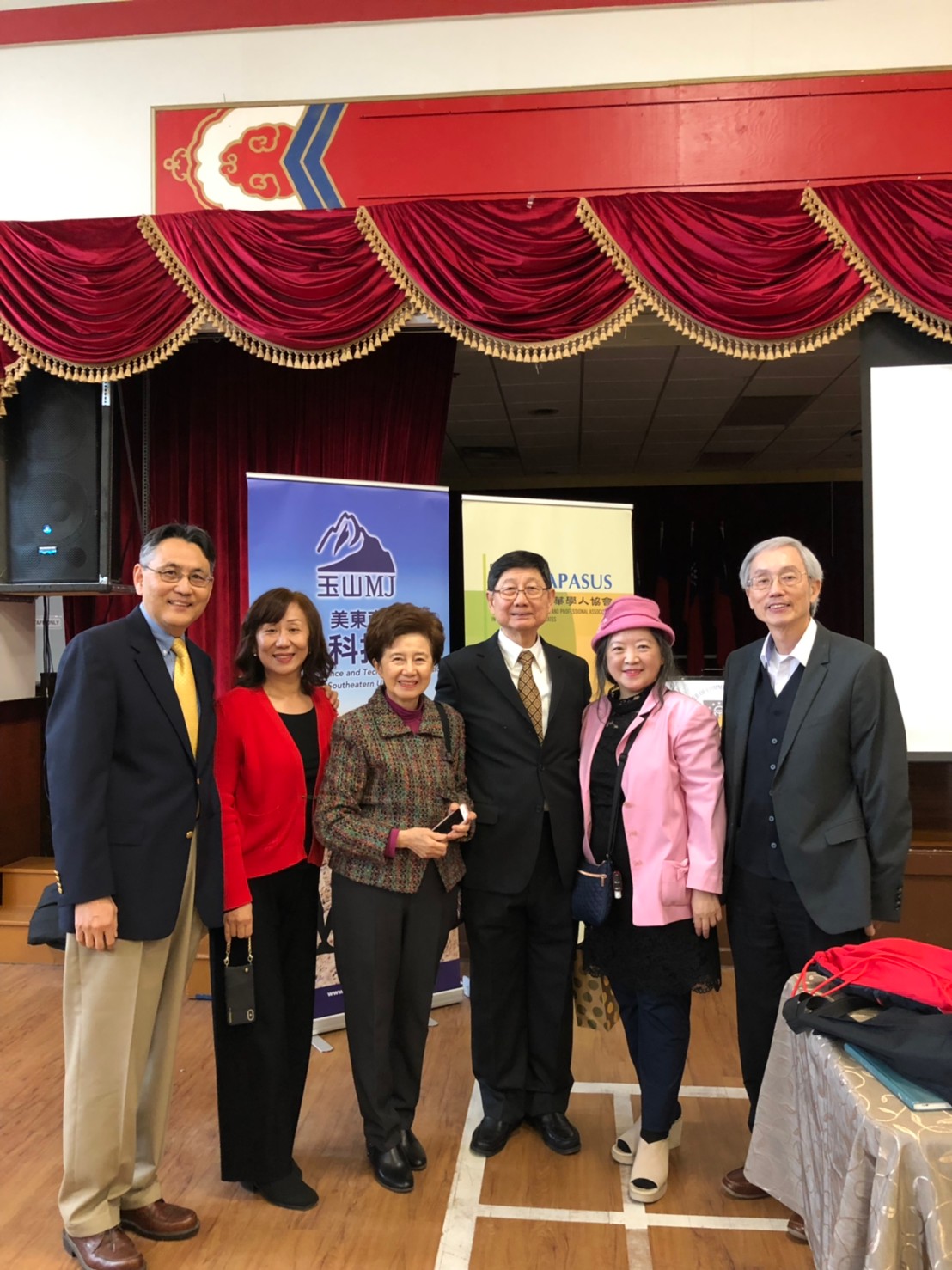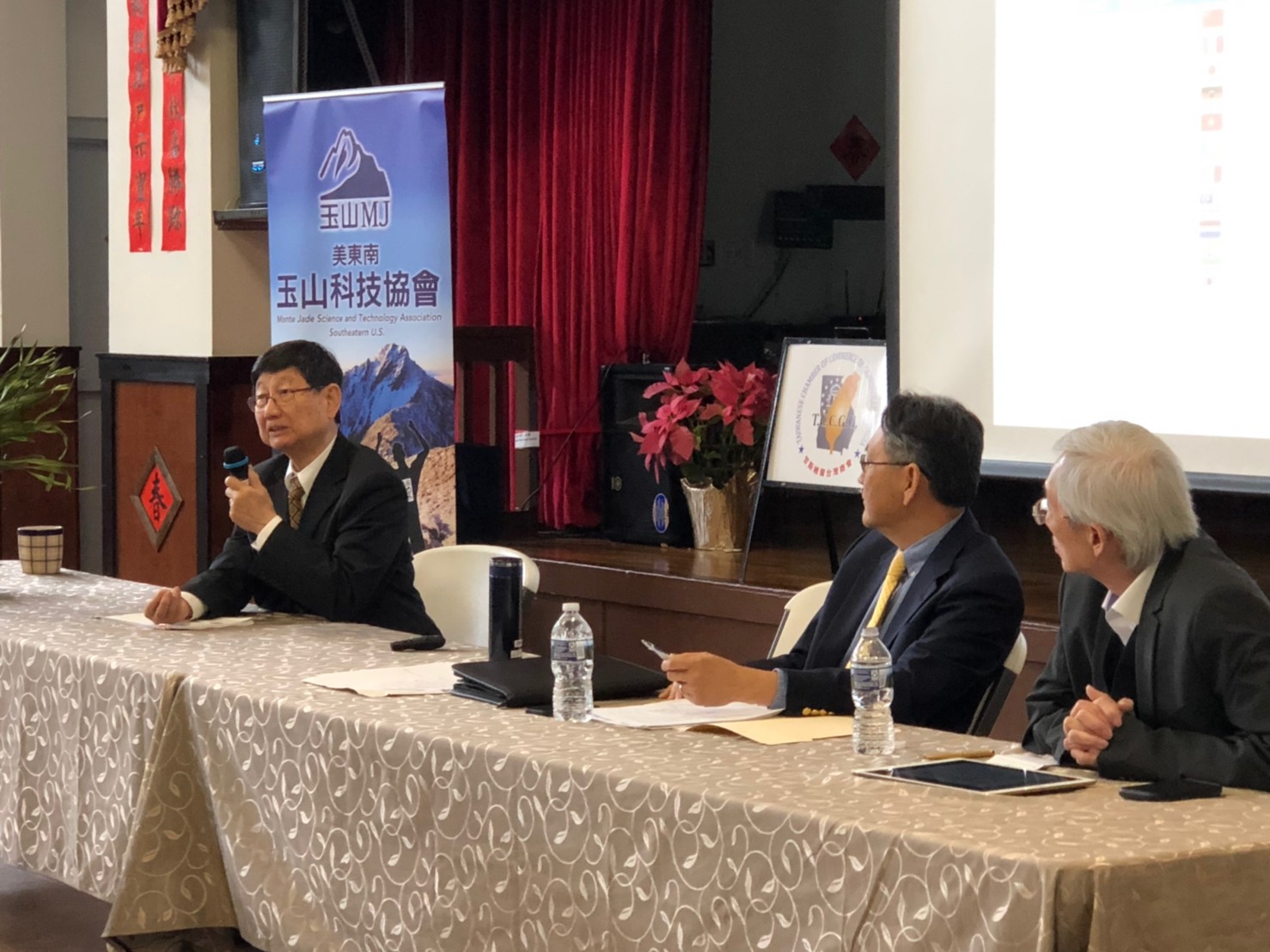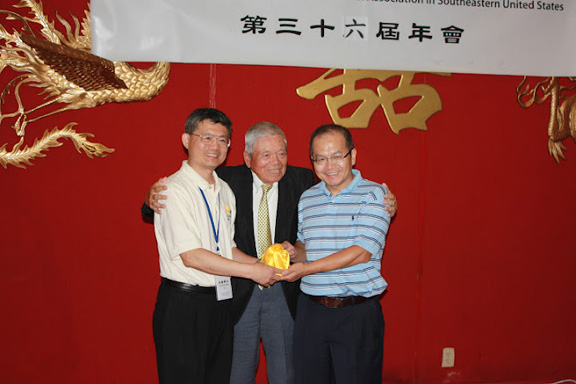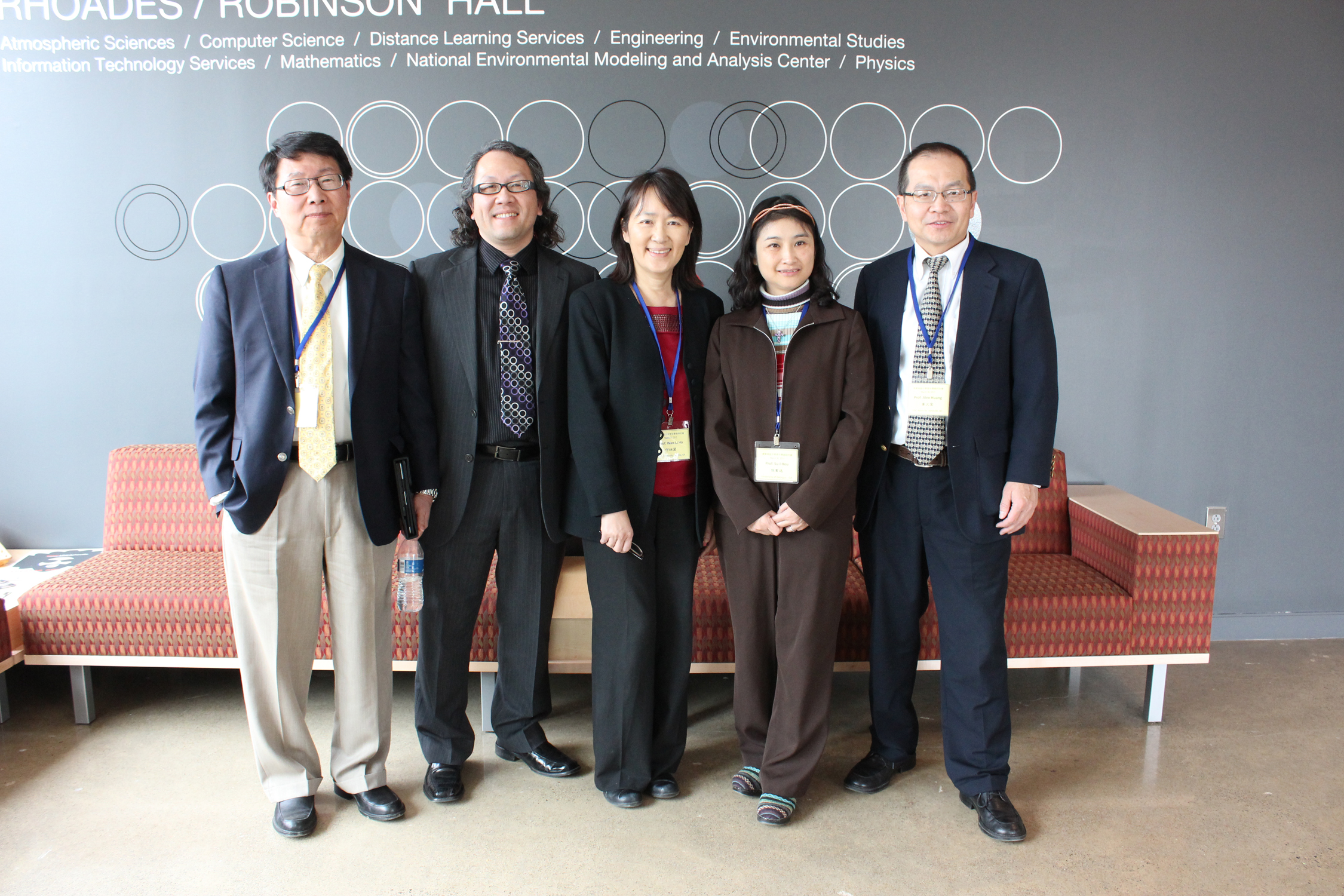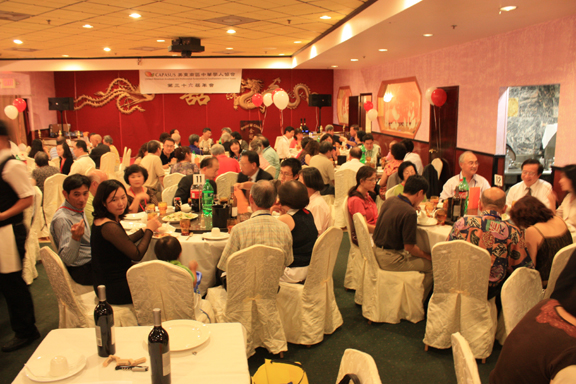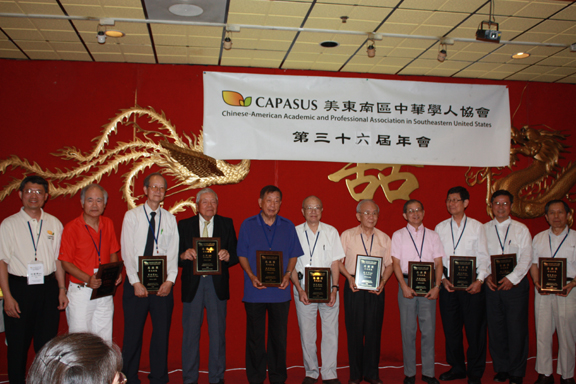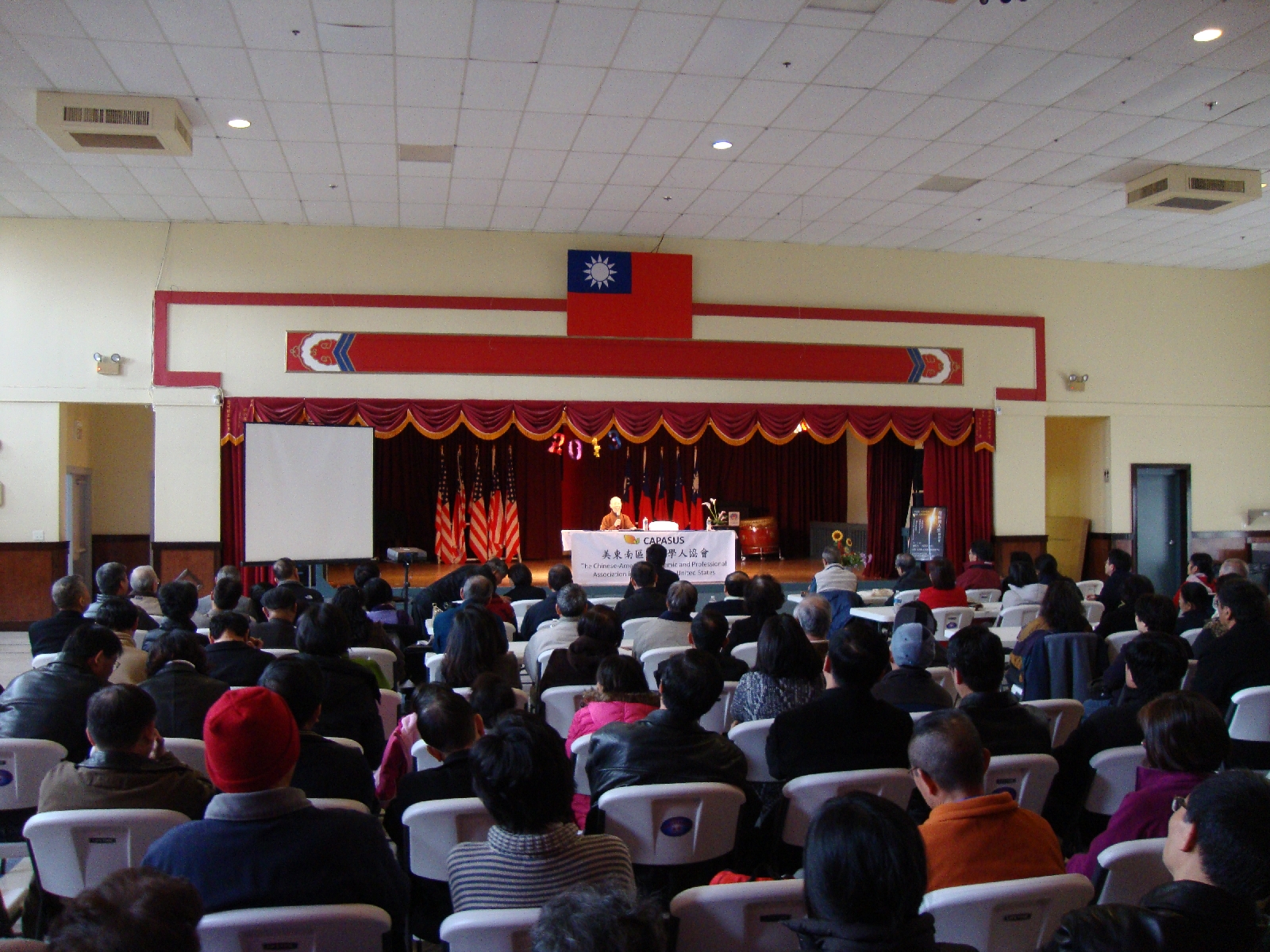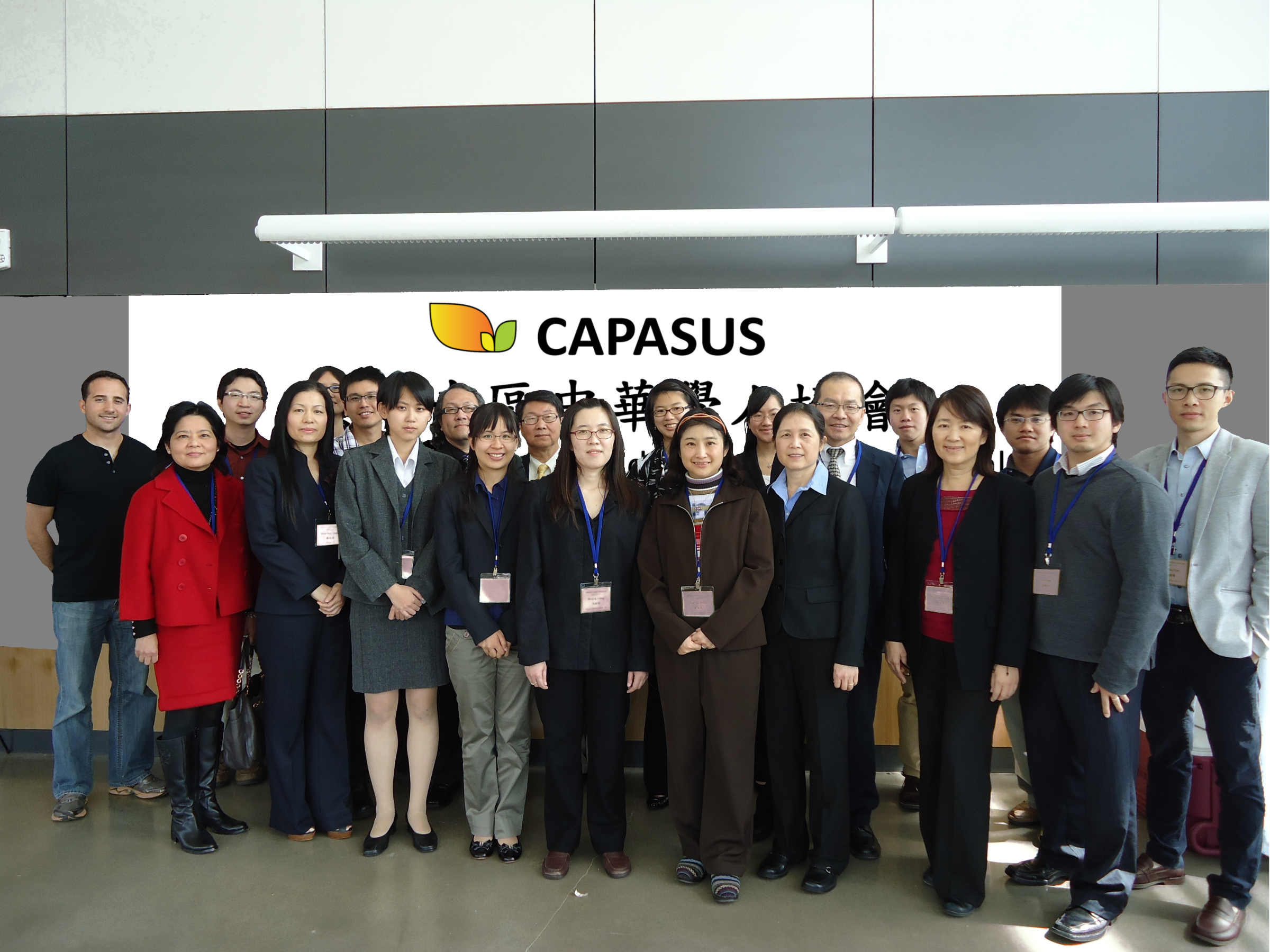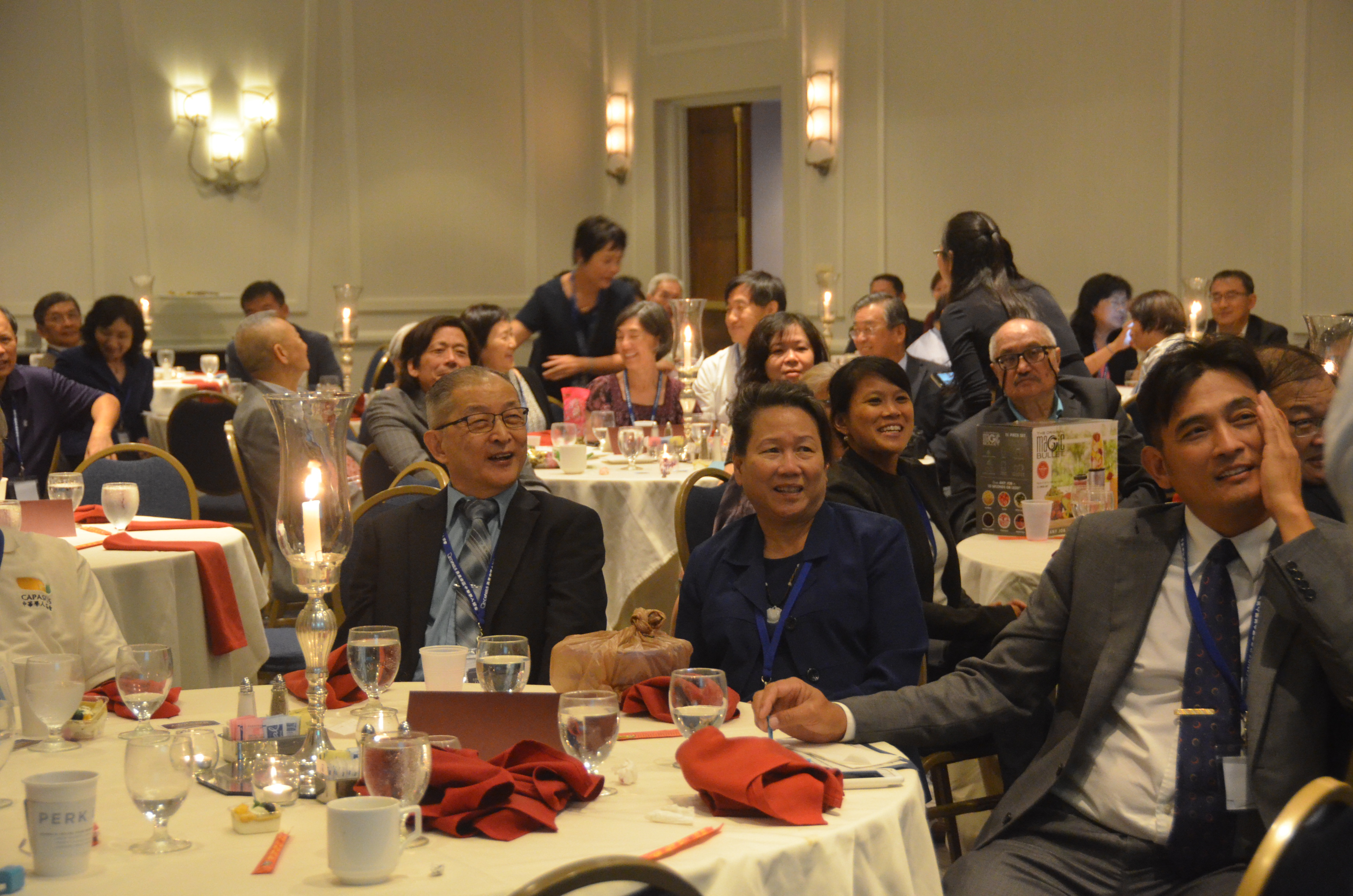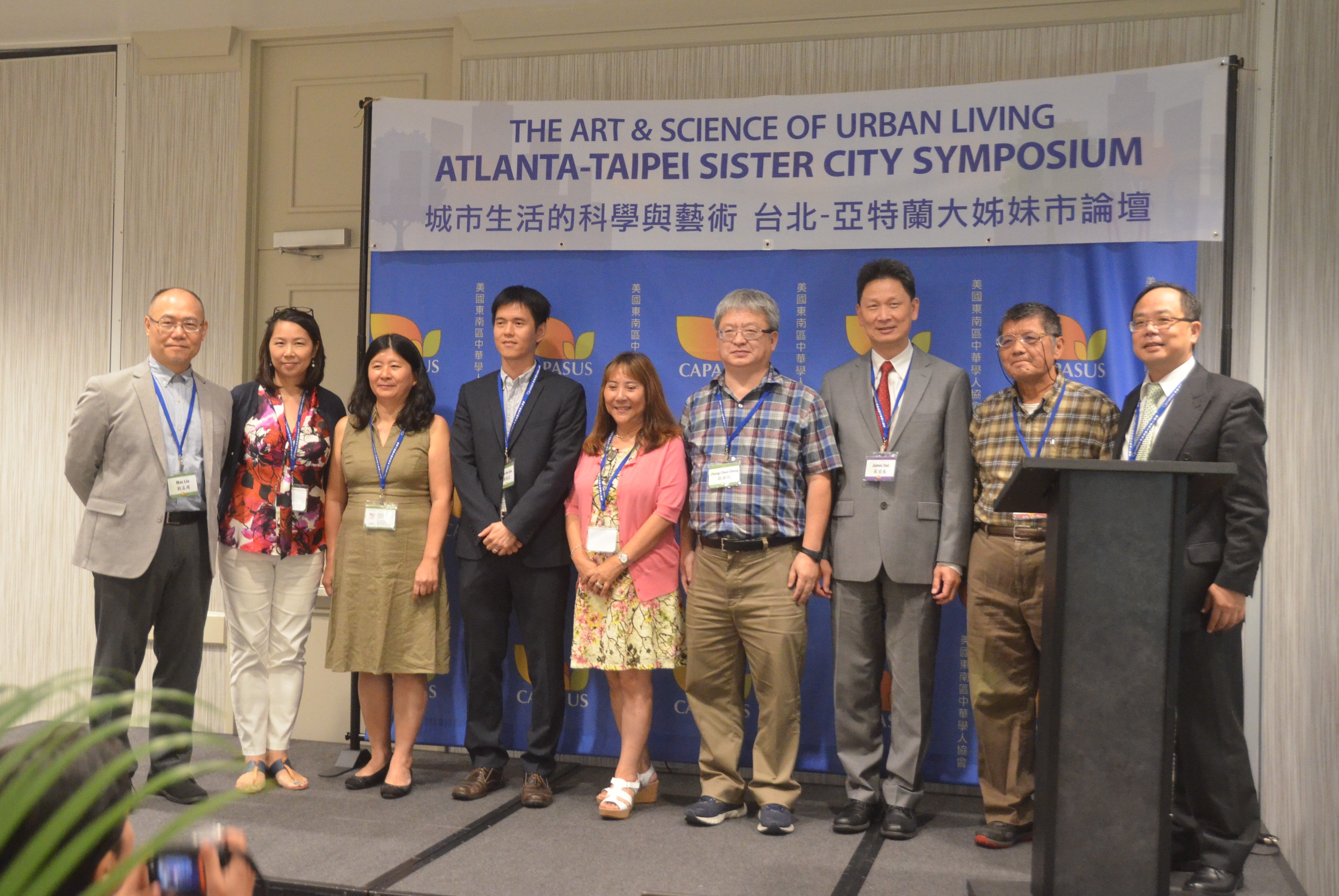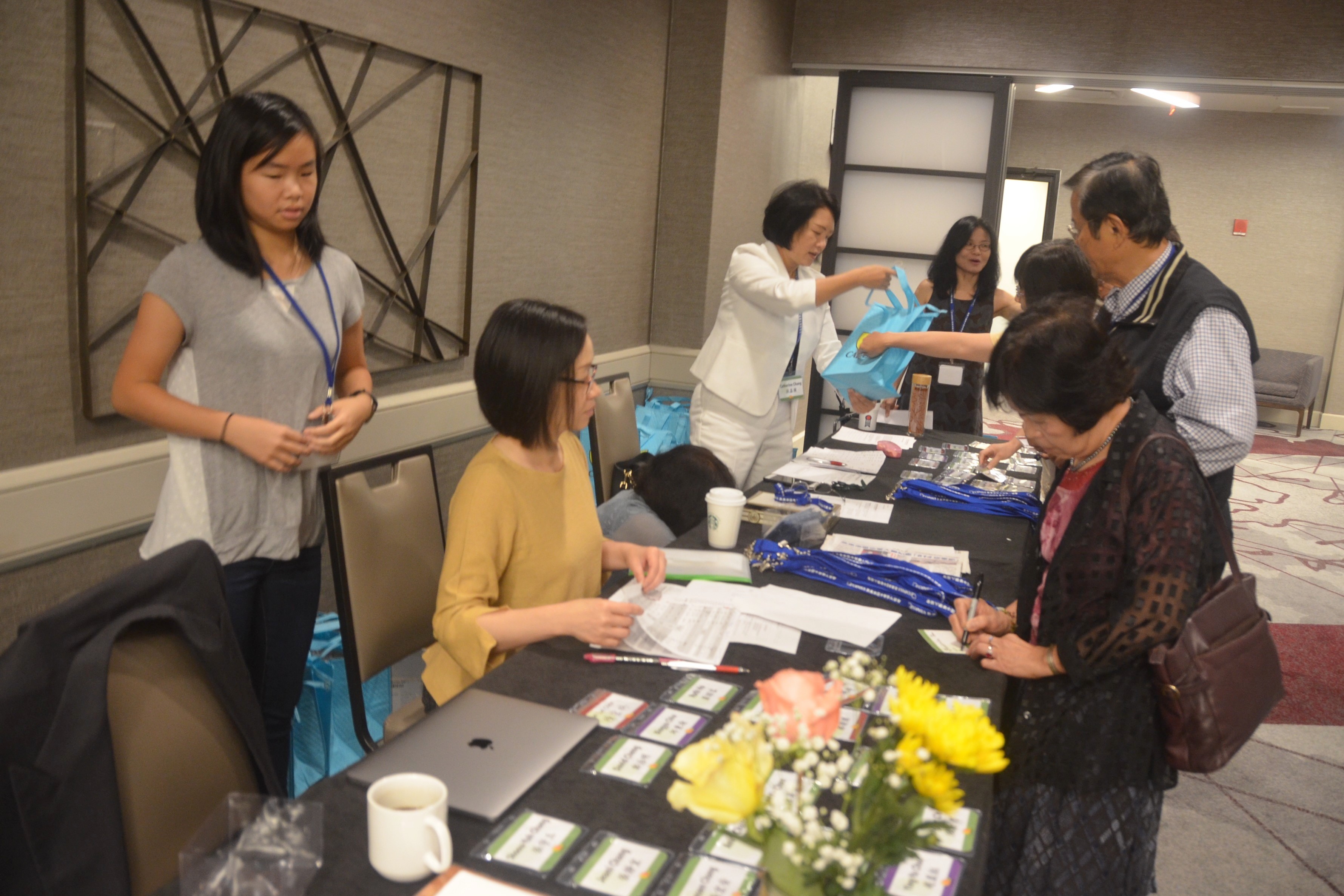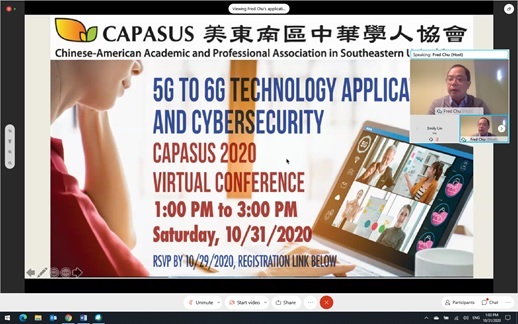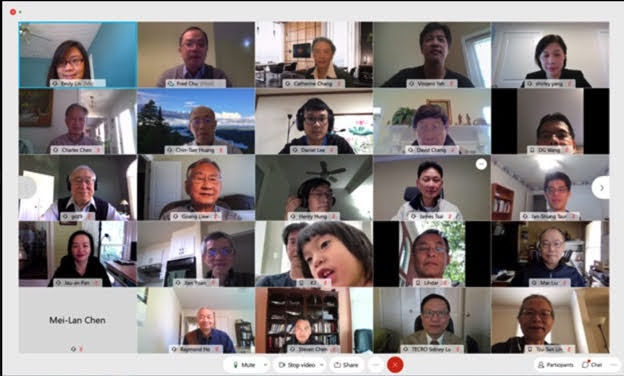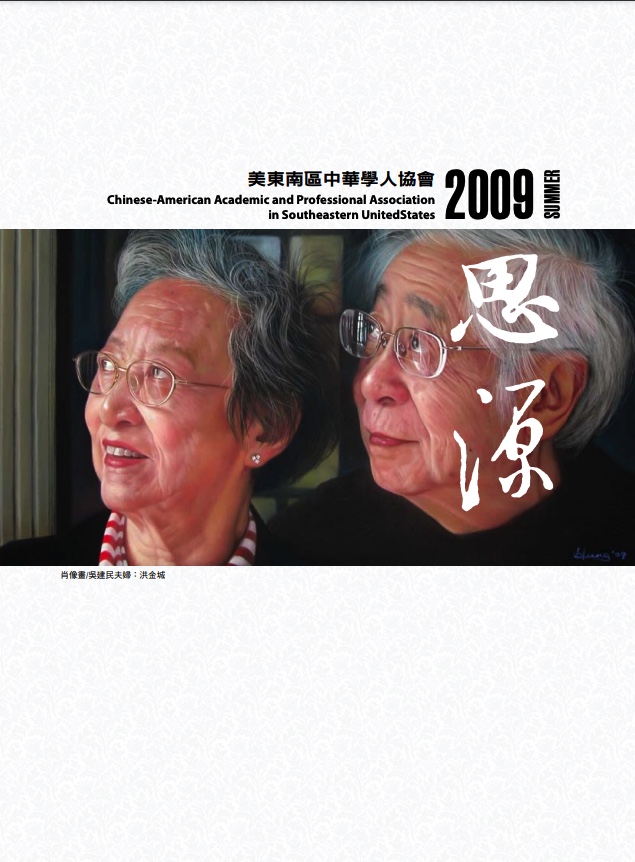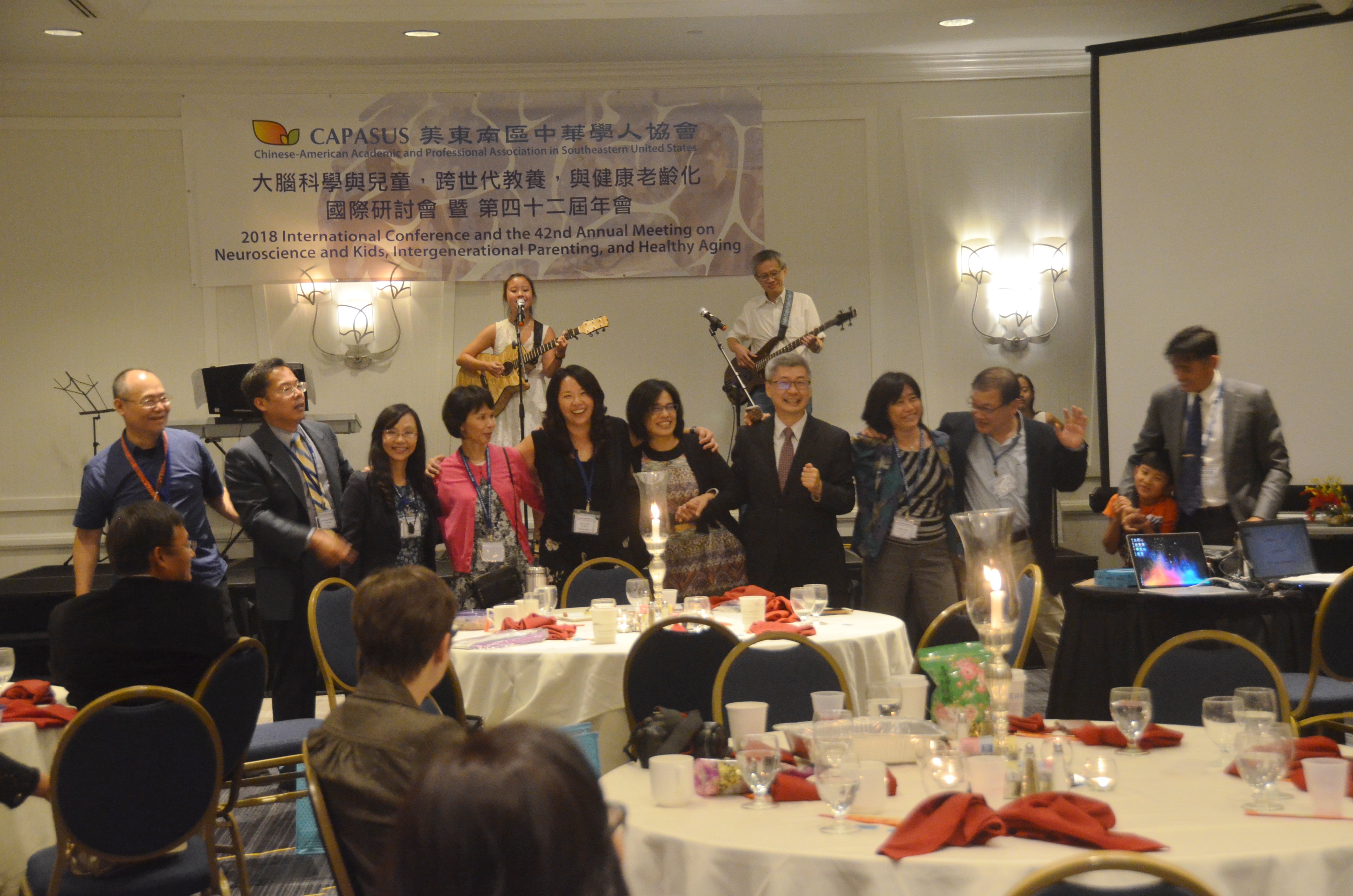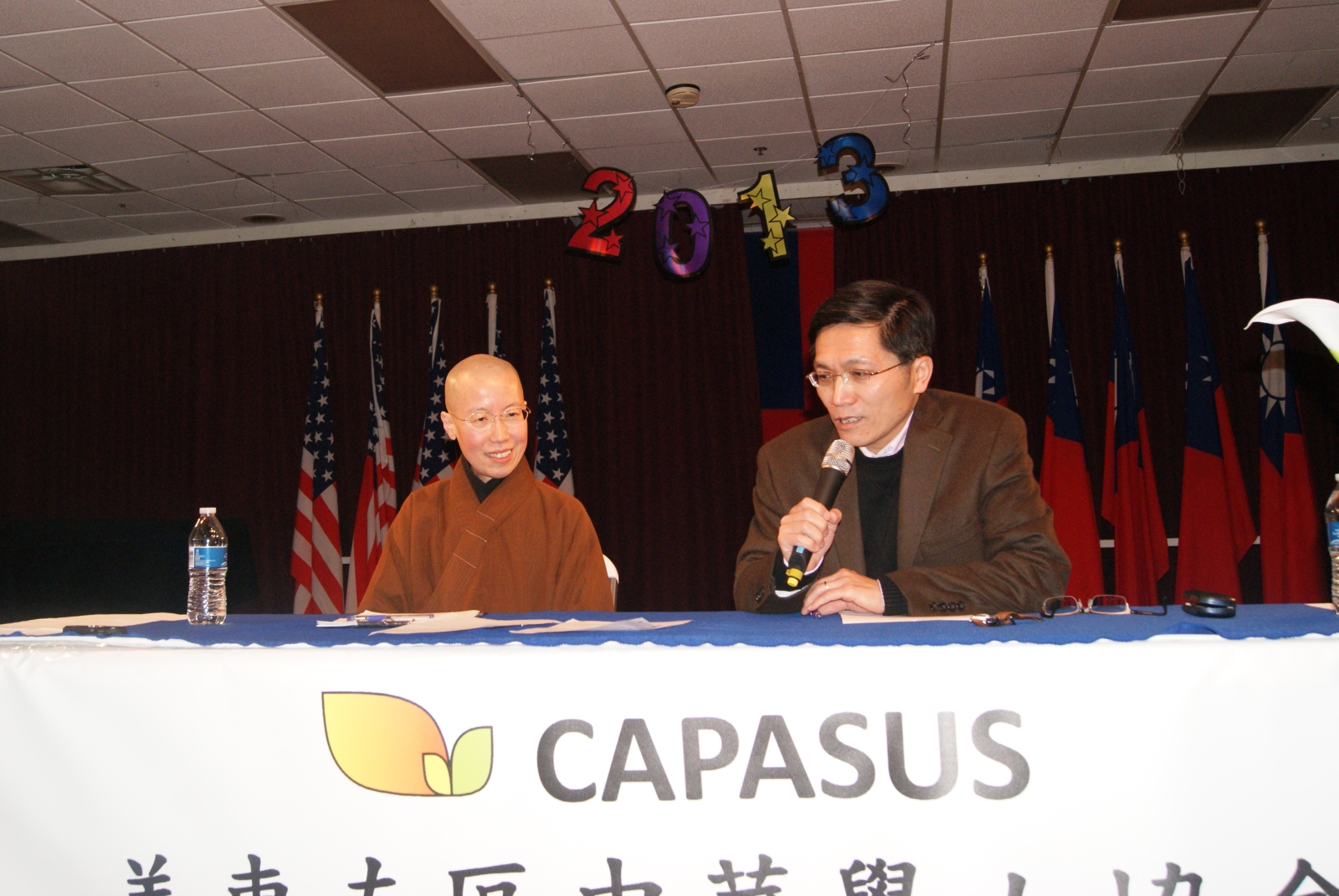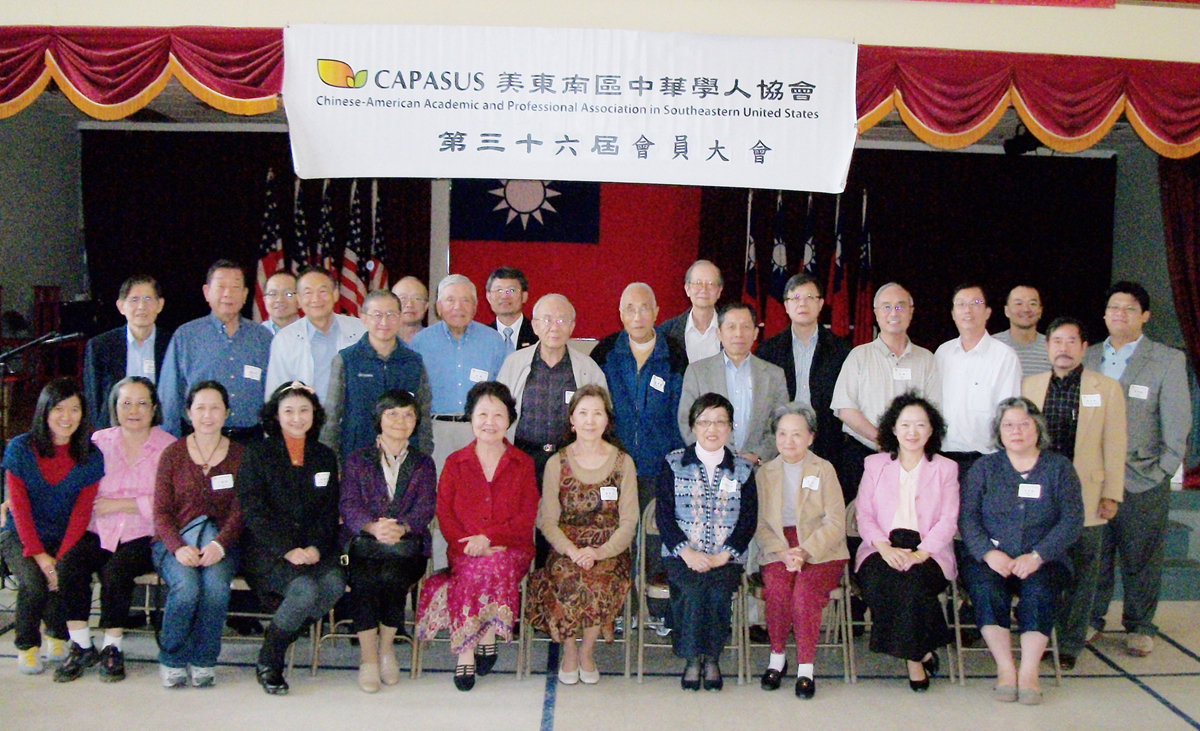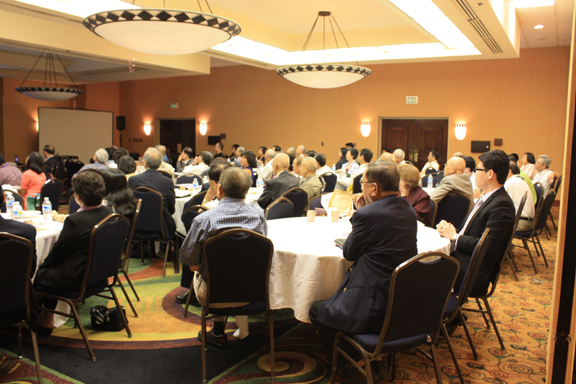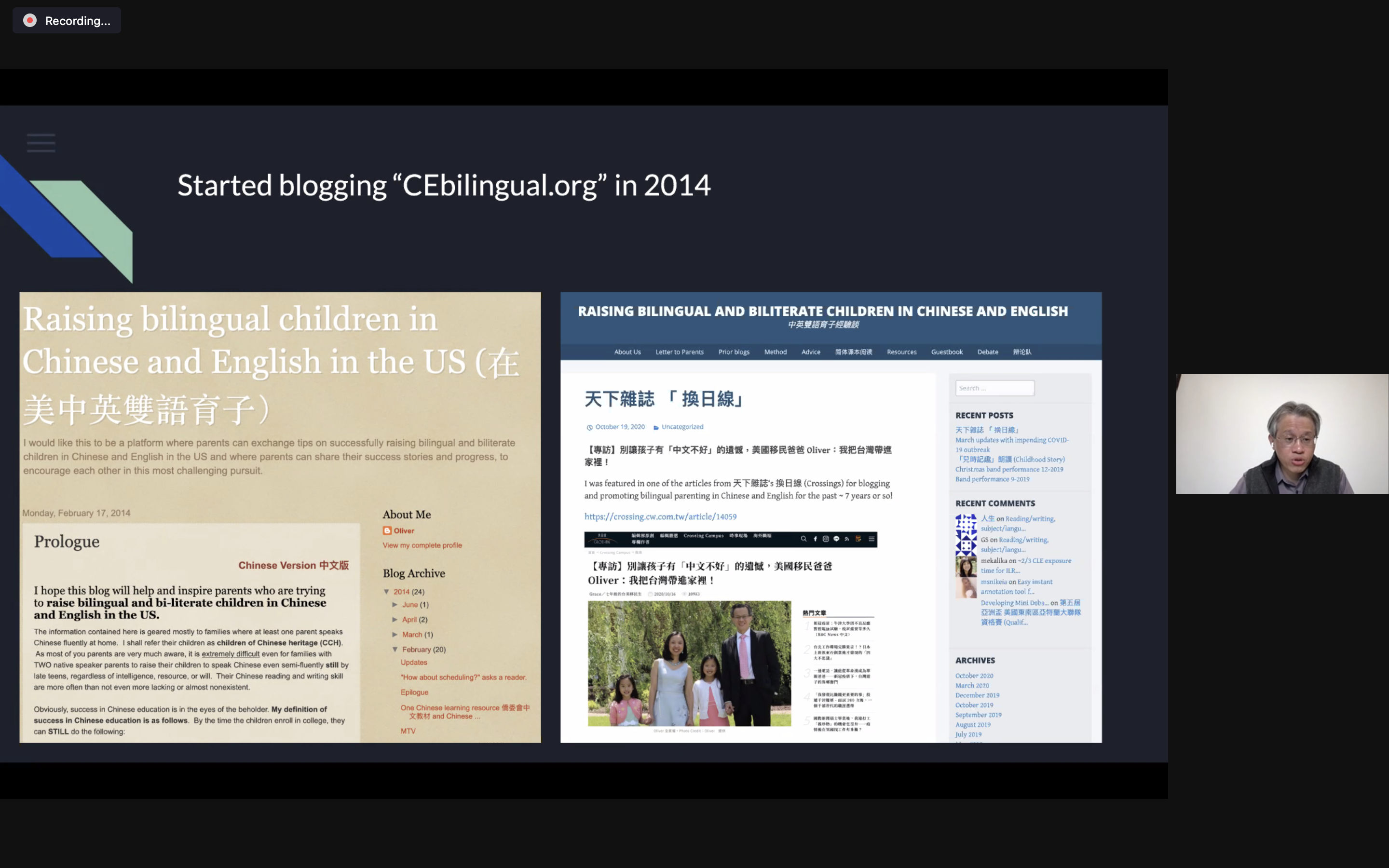I learned that courage was not the absence of fear, but the triumph over it.
The brave man is not he who does not feel afraid, but he who conquers that fear.
by Nelson Mandela
Humanity: Fear and Courage
Fighting against apartheid and for popular rights in South Africa, Nelson Mandela spent 27 years in prison fighting for justice and people’s civil rights. How many 27 years could each of us have? Mandela was not a perfect man, but he persisted in building up his ideal nation in South Africa.
CAPASUS: Past and Present
The Chinese-American Academic and Professional Association in Southeastern United States(CAPASUS)was established on June 25, 1977, in Atlanta, Georgia. CAPASUS is a “not for profit” organization. Our members come from eight states in the southeastern region of the United States: Alabama, Florida, Georgia, Kentucky, Mississippi, North Carolina, South Carolina, and Tennessee. Its constitution lists the objectives as 1) to provide opportunities for all members to exchange their academic, cultural, social, professional, and business knowledge and experiences and 2) to make academic, cultural, social, professional, and business contributions to the societies of the United States and the Republic of China (Taiwan). For more than four decades, CAPASUS has served as a great platform in the southeastern region for scholars, professionals, and officials from diverse institutions in Taiwan and the U.S. to exchange academic and professional opinions.
From 2019 to 2022 we tried to find new directions. During the COVID-19 pandemic, CAPASUS continued to host webinars to help our community be familiar with a diversity of academic and professional topics such as the 5G industries, Chinese language learning, criminal activities and education during the pandemic, senior care and gerontology, career development, precision medicine and so on. Through networking and discussions, interdisciplinary academic progress continues to strengthen the transnational partnership between nations. Our attendees came from both Taiwan and the U.S. When vaccines greatly lessened the pandemic threat, CAPASUS quickly organized outdoor events such as the Blueridge train ride tour and Westside Park community walk.
The 2022 CAPASUS conference continues these efforts and is titled “From Smart Power to Smart Nations: Digital Technology and Humanities for Transnational Asian Americans.” We invite leading scholars/professionals in the southeastern U.S. and Taiwan, and we reach out and welcome attendees from all walks of life to join us virtually or in person. Furthermore, we expect to see more rational communication, more connection, and more human-based and humanitarian discussion at this conference and in the future. When we are advancing digital technology and examining our past and present world, we are building up our ideal community and nations.
Theme
Featuring the theme of “digital/humanities,” the 2022 CAPASUS conference addresses the significance of AI technology, digital generations, and Smart Nations. CAPASUS hopes to promote industrial alliance and stimulate dialogues concerning academic and cultural exchanges between nations. Underscoring the most recent applications of Artificial Intelligence (AI) and the digital revolution, this conference endeavors in demonstrating the principle that science and technology should serve humanity and enhance the well-being of the global community.
Our broad community engagement is the key to success. This conference highlights the efforts of three realms: 1) AI technology and advanced analytics; 2) digital generations’ civic engagement and community collaboration, and 3) East Asian and global histories from a multicultural perspective and through digital humanities. And it hopes to achieve two goals: 1) to facilitate academic and cultural exchanges; and 2) to strengthen global economic partnership to grow “Smart Power,” meaning the interchangeable use of Hard Power (e.g., military and economy) and Soft Power (e.g., culture and education), all three concepts being developed by Harvard professor, Dr. Joseph S. Nye Jr.
AI Technology and Advanced Analytics
In the past decade, AI and digital technology have greatly advanced so that “Smart City” and “Smart Nation” become government policies across the world.
The U.S. launched the “Smart City Challenge” in 2015 (Smart City Challenge). To build up Smart Taiwan, the ROC (Taiwan) similarly developed the “Digital Nation & Innovative Economic Development Program (DIGI+) 2017-2025” in 2016, “the 5+2 Industrial Transformation Plan” in 2017, and promoted them to be “Smart Nation” in 2021 (DIGI+ Taiwan).
However, the global pandemic beginning in 2020 reveals the urgency of realizing the Smart Nation’s vision. The supply shock exposes vulnerabilities in the production strategies and supply chains of firms everywhere under the old-styled global economy. The economic future of a country thus heavily depends on advanced analytics and digital economy, the “Hard Power” of a Smart Nation. The $1 trillion U.S. “Bipartisan Infrastructure Investment and Jobs Act” in 2021 attests to such needs (President Biden’s Bipartisan Infrastructure Law).
The 2022 CAPASUS conference accentuates the scholarship strength in the southeastern U.S. and invites scholars and students to present their latest findings. On July 30th (Saturday), Dr. James Tsai, Dr. Edward Huang, and Dr. Chin-Tser Huang targeted our concerns to explain how smart roadways innovations could greatly improve transportation safety and save lives, how a new digital twin-based learning framework can improve the efficiency of future supply chains systems, and how applying the technology of digital forensics has curbed digital criminal activities. Ph.D. students, Mr. Yung-An Hsieh, Mr. Po-Kai Hsu, Ms. Yun-Ruei Ku, Mr. Nealson Li, and Mr. Tzuhan Wang, also introduced their interdisciplinary projects about smart cities, neuroscience, genetic sequencing, and linguistics.
Civic Engagement and Community Collaboration
The second highlight of this conference manifests the commitment of all scholars and professionals from diverse disciplines and industrial sectors to share their experiences. Whereas the ultimate goal of a Smart Nation is to serve people, political and social polarization in many societies has been exacerbated. Various studies by the PEW Research Center, for example, show that most Americans share similar concerns about policy continuity and income disparity, quality education and increasing school dropout rate, climate changes, and energy sustainability, fake news, and hate crimes against minority groups (“Striking Findings from 2021”).
We hope our presentations and conversation would generate stronger community consciousness and grow “Soft Power.”
CAPASUS with its unique nature to include academics and professionals would be a great platform to cultivate communication among ethnic groups and between generations. In addition to scholarly presentations, two panels aim to advance the experiences of Asian ethnicities in American society. On July 30th (Saturday), two members from the AAPI Division of the South Carolina Commission for Minority Affairs—Mr. Jimmy Chao and Dr. Seulghee Lee—led a panel discussion titled “Asian American Civic Engagement and Advocacy in the Contemporary Southeast U.S.” Mr. Chao has been engaged in upholding Asian American rights in the Carolinas for many years, and Dr. Lee shared his unique perspective with his ancestral heritage and specialty in African American Studies. On July 31 (Sunday), the second panel titled “How to Prepare Yourself for American Industries?” invited four experienced entrepreneurs—Mr. Jimmy Chao, Dr. Bin Chung, Dr. Yu-tung Tsai, and Dr. Sue-Ling Wang.
They answered questions from young scholars and students about embracing American workplace culture.
East Asian and Global Histories
The third highlight of this 2022 CAPASUS conference is its focus on humanities.
A new, broad, and interdisciplinary field of humanities have been growing with the advance of computer technology in the past two decades. Instead of field research and personal visits to archives or libraries, analyzing digitized documents and artifacts expedites scholars’ research. These documents and artifacts could be paintings and porcelain, government census, treaties and political memorandums, diaries of historical figures, newspapers, and periodicals, and even trading logbooks.
Once digitized, they are just one click away whenever people are ready to enjoy the feast of knowledge and to improve rational communication in society. Humanities, with the help of digital technology, thus remain to be a pillar of a Smart Nation.
Five Taiwanese scholars virtually attended this 2022 CAPASUS to present East Asian and global histories from a multicultural perspective. Dr. Yi-shen Chen, the current president of Academia Historica in Taiwan and research fellow in Academia Sinica, has committed to the digitization project of governmental sources and regularly hosting scholarly webinars to bridge academia and all communities. He gave the opening address on July 30th and feature post-WWII Taiwanese history with his expertise in archival research. National Palace Museum is the best example of the digital museum in Taiwan. More than two decades ago, the museum established an online platform and uploaded many digitized documents for scholars’ research. Dr. Chiung-min Tsai introduced the museum’s digital transformation and future plans. On July 31st morning, Dr. Weichung Cheng, an associate research fellow in Academia Sinica, used Chinese and Dutch archival sources to present a colorful picture of pirates, traders, and officials in East Asia, i.e., maritime history and Taiwan’s emergence in the Age of Exploration. However, there is a hierarchy within historical materials.
Instead of supporting any sovereignty claim, Dr. Tien-Hao Jen from Defense University applied tier-one historical documents to examine the root of the “dispute” of “Diaoyutai” in East Asia.
The lack of institutionalization in government rule and the shortage of reliable materials and data, however, could lead to misrule and tensions between nations. Dr. Jerome Fu-Chung Li from Cheng-Chi University analyzed Chinese government documents and leaders’ speeches to examine the historical pattern of China’s power dynamics.
We Are the World
We the people are living in a digital age. We might belong to different generations. But we are the world. Highlighting the theme of “Digital/Humanities,” we hope this 2022 CAPASUS conference has contributed to the establishment of many Smart Nations to help us all, humanity.
